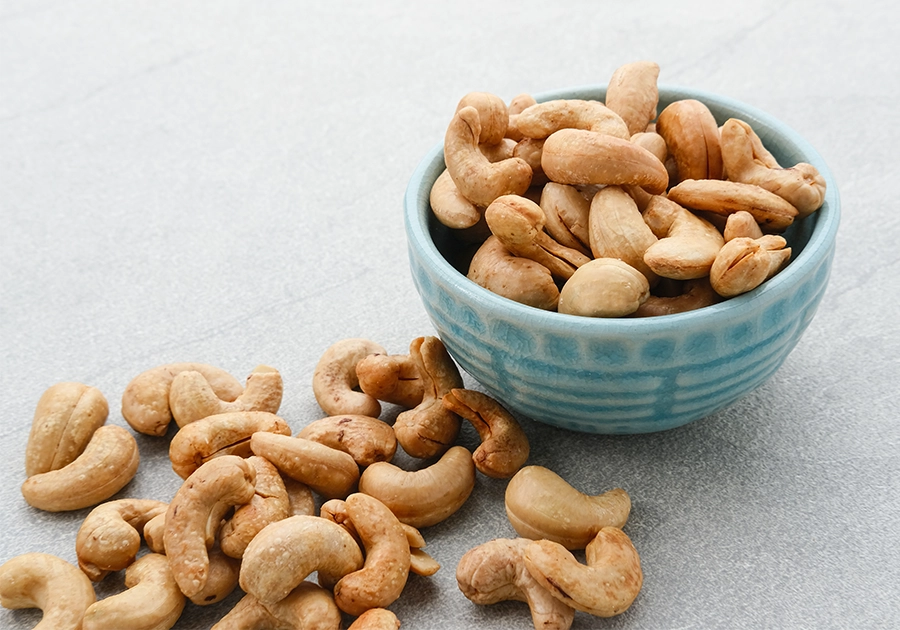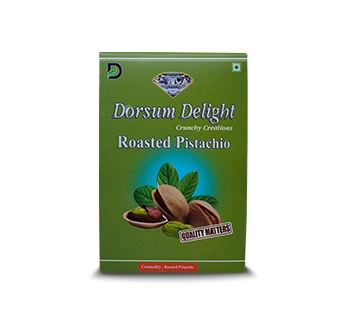And misconceptions surround these nuts. In this article, we get into details about five common cashew myths, debunking them with factual evidence and expert insights. In this comprehensive guide, we delve into the common misconceptions about cashews and uncover the truth behind their nutritional value.
Understanding Cashews: A Nutritional Overview
What Are Cashews?
Cashews are kidney-shaped nuts that are native to Brazil but are now cultivated in various tropical regions worldwide. They are known for their rich, buttery flavor and creamy texture.
In India, Cashew is mainly grown in states like Maharashtra, Kerala, Karnataka, Tamil Nadu, Andhra Pradesh, Goa, Odessa, West Bengal, and some parts of the North-Eastern region.
About Cashew Apple
The cashew apple, often referred to as a pseudo fruit, is a juicy and fibrous fruit packed with nutrients. It contains sugars, amino acids, tannin, and ascorbic acid (Vitamin C), along with crude fiber. Cashew apple stands out for its exceptionally high ascorbic acid content, boasting around, which is nearly six times higher than that of citrus fruits like oranges. Additionally, it is abundant in free soluble sugars, predominantly reducing sugars. With a crude fiber content ranging from 15 to 18% on a dry weight basis, cashew apple also provides essential phenols, tannins, and flavonols, acting as natural antioxidants to combat free radicals. As a rich source of Vitamin C and fiber, consuming cashew apple can help address Vitamin C deficiency and alleviate constipation.
Is Cashew a Fruit? the Truth Behind Cashew Apples
Many hold the misconception that cashews are nuts, but in reality, Cashew is a fruit that sprouts at the bottom of cashew apples. Let’s explore the fascinating world of cashew apples and the hidden treasures they hold.
The Appearance of Cashew Apples: A Closer Look
Cashew apples bear a striking resemblance to traditional apples, comprising 90% fruit and 10% raw cashew nut. Their color palette varies from golden-yellow to vibrant red, sometimes showcasing a delightful blend of both hues.
Nutritional Profile of Cashews
Cashews are packed with essential nutrients, including protein, healthy fats, vitamins, and minerals. They are particularly rich in monounsaturated fats, which are beneficial for heart health, as well as copper, magnesium, and antioxidants.
Debunking Common Misconceptions
- High in Calories and Fat: Myth or Reality?
Reality: While cashews are indeed calorie-dense and contain fat, the majority of their fat content comes from heart-healthy monounsaturated fats. When consumed in moderation as part of a balanced diet, cashews can be a nutritious snack option.
- Weight Gain Concerns: Addressing the Fear
Reality: Despite their calorie and fat content, research suggests that incorporating nuts like cashews into your diet may not lead to weight gain. In fact, the protein and fiber in cashews can promote satiety, helping you feel fuller for longer and potentially aiding in weight management.
- Blood Sugar Control: Separating Fact from Fiction
Reality: Contrary to popular belief, cashews have a low glycemic index, meaning they have a minimal impact on blood sugar levels. Their combination of protein, healthy fats, and fiber can even help stabilize blood sugar levels when consumed as part of a balanced meal or snack.
- Nut Allergy Concerns: Understanding the Risks
Reality: While cashews are tree nuts and can trigger allergies in some individuals, they are less allergenic compared to other nuts like peanuts. However, those with nut allergies should exercise caution and consult with a healthcare professional before consuming cashews.
Raw Cashews are Toxic
Raw cashews undergo a rigorous processing method to remove urushiol, a toxic substance found in the cashew shell. As a result, commercially available raw cashews are safe for consumption and widely used in culinary applications.
In conclusion, cashews are a wholesome snack option that can be enjoyed as part of a balanced diet. Despite common misconceptions about their calorie and fat content, cashews offer numerous health benefits, including heart health support and blood sugar control. By understanding the facts behind these nuts, you can confidently incorporate them into your dietary routine.
Frequently Asked Questions (FAQs) About Almonds
- Can cashews be consumed raw?
While commercially available raw cashews undergo processing to remove toxins, it is recommended to roast or cook them before consumption to enhance flavor and texture.
- Are roasted cashews healthier than raw ones?
Roasted cashews may contain added oils and salt, so raw cashews are generally considered the healthier option.
- Are cashews suitable for individuals with diabetes?
Yes, cashews can be part of a diabetes-friendly diet due to their low glycemic index and beneficial nutrient profile.
- Can cashews be incorporated into various recipes?
Absolutely! Cashews can be used in both sweet and savory dishes, from salads and stir-fries to dairy-free sauces and desserts
- Are there any potential side effects of consuming cashews?
While cashews are nutritious, consuming them in excess may lead to weight gain due to their calorie density. Additionally, individuals with nut allergies should be cautious and avoid cashews if necessary.
- How should cashews be stored to maintain freshness?
To preserve the freshness of cashews, store them in an airtight container in a cool, dry place away from direct sunlight. Refrigeration can further extend their shelf life.
- Can cashews be included in a vegan diet?
Yes, cashews are a popular choice in vegan diets due to their creamy texture and versatility. They can be used to prepare dairy-free alternatives like cashew milk, cheese, and cream.








